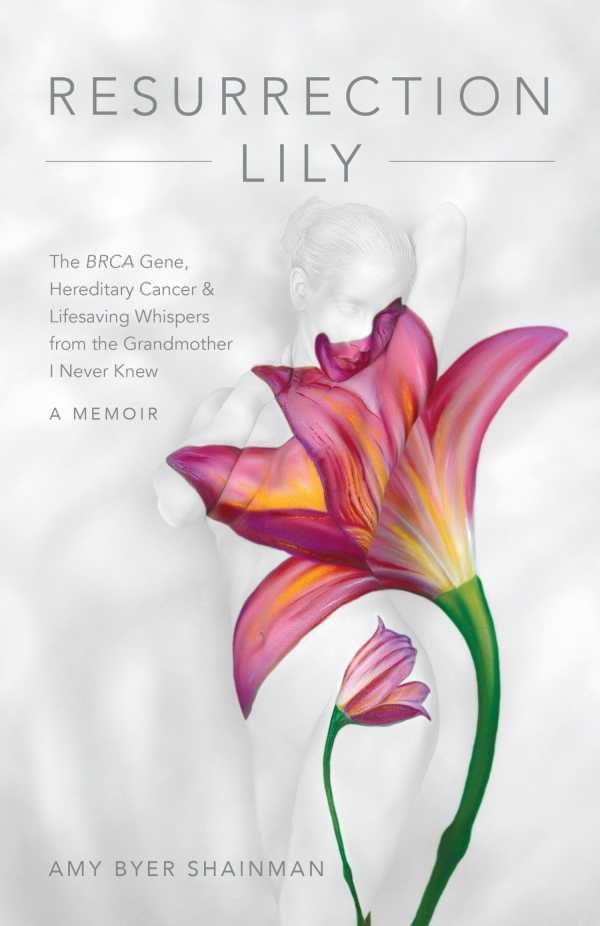Resurrection Lily
The BRCA Gene, Hereditary Cancer & Lifesaving Whispers from the Grandmother I Never Knew
Resurrection Lily tells a personal story about cancer prevention that doubles as a source of important information for women of all ages.
Amy Byer Shainman’s memoir Resurrection Lily is an inspiring account of combating BRCA positivity and promoting preventative health.
While the average woman has a 12 percent lifetime risk of developing breast cancer, a woman carrying the BRCA gene has a risk of up to 85 percent. After her sister was diagnosed with ovarian cancer and tested positive for the gene, and taking her Ashkenazi descent into account, Shainman took proactive, cancer-preventative action. She had a hysterectomy, a oophorectomy (the surgical removal of the ovaries), and a double mastectomy in her early forties.
“What if you were told you had an 85 percent chance of winning the lottery?” she says when people say her decision was rash. A 15 percent chance that she wouldn’t develop breast cancer was a chance that Shainman didn’t want to take. Detailing her process before, during, and after the surgeries, her memoir covers genetic counseling, psychiatric counseling, premature menopause, social adjustments, and Shainman’s desire to spread awareness of BRCA and the preventative measures BRCA-positive women can take.
Extensively researched, the text includes pertinent quotes from doctors, scientific articles and research papers, and friends and family who also went through cancer or similar surgeries. More than a memoir, it is an essential resource for women concerned about breast cancer and all that it entails, both before and after a diagnosis. Sources and resources listed at the end of the book provide vital help to those seeking further information.
The text is organized mostly chronologically, beginning with the news that Shainman’s sister and one of her good friends were diagnosed with multiple forms of cancer around the same time. It shares that her sister lived, though her friend passed away, leaving behind a young daughter. It follows Shainman’s growing understanding of the implications of the BRCA mutation, as her research builds on itself. It explores the science of genetics and breast cancer with a critical eye and encourages women to do their own research, to feel empowered, and to make decisions for themselves.
The “resurrection lily” motif is seen in chapter titles, which consist of floral themes but make it difficult to discern what the chapter may be about. Its more compelling use comes via the tone of the book and its sense of blossoming into womanhood post-surgery and cultivating a garden of knowledge. Empowered language and an educated tone affirm Shainman’s credibility.
Resurrection Lily tells a personal story about cancer prevention that doubles as a source of important information for women of all ages.
Reviewed by
Aimee Jodoin
Disclosure: This article is not an endorsement, but a review. The publisher of this book provided free copies of the book and paid a small fee to have their book reviewed by a professional reviewer. Foreword Reviews and Clarion Reviews make no guarantee that the publisher will receive a positive review. Foreword Magazine, Inc. is disclosing this in accordance with the Federal Trade Commission’s 16 CFR, Part 255.

